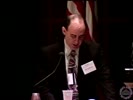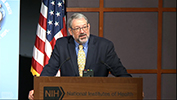Getting Old Before Our Time: Psychiatric Illness and Accelerated Cell AgingLoading... Loading video... 454 Views
Related Videos... |
VideoCast Downloader

Getting Old Before Our Time: Psychiatric Illness and Accelerated Cell Aging
Download VideoCast
You can download this VideoCast and play it on your device. There are multiple sizes available for you to choose from.
Download caption text
You can download caption text of the VideoCast.









